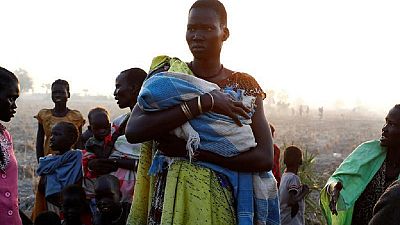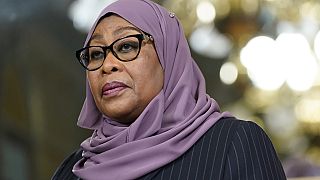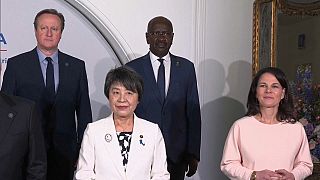Refugees
Global refugee figures at the end of 2016 hit record high of 65.5 million displaced, an increase of 300,000 people over the previous year, according to figures from the United Nations (UN) refugee agency.
The UNHCR in its latest report on the phenomenon noted that most displacements were as a result of persecution, conflict, violence, or human rights violations.
The UN outfit disclosed some worrying statistics in its latest report titled, Global Trends, Forced Displacement in 2016. The UN has slated every June 20 as World Refugee Day.
Below are a number of harrowing statistics from the UNHCR
65.6 MILLION FORCIBLY DISPLACED WORLDWIDE
22.5 million people were refugees at end-2016
17.2 million under UNHCR’s mandate
5.3 million Palestinian refugees registered by UNRWA
40.3 million internally displaced people
2.8 million asylum-seekers
10.3 MILLION NEWLY DISPLACED
During the year, 10.3 million people were newly displaced by conflict or persecution. This included 6.9 million individuals displaced within the borders of their own countries and 3.4 million new refugees and new asylum-seekers.
20 NEW DISPLACEMENTS EVERY MINUTE
The number of new displacements was equivalent to 20 people being forced to flee their homes every minute of 2016, or 28,300 every day.
10 MILLION PEOPLE
UNHCR estimated that at least 10 million people were stateless or at risk of statelessness in 2016. However, data captured by governments and reported to UNHCR were limited to 3.2 million stateless individuals in 75 countries.
51% CHILDREN
Children below 18 years of age constituted about half of the refugee population in 2016, as in recent years. Children make up an estimated 31 per cent of the total world population.
84% HOSTED BY DEVELOPING REGIONS
Developing regions hosted 84 per cent of the world’s refugees under UNHCR’s mandate, with about 14.5 million people. The least developed countries provided asylum to a growing proportion, with 28 per cent of the global total (4.9 million refugees).
552,200 REFUGEES RETURNED
Refugee returns increased from recent years. During 2016, 552,200 refugees returned to their countries of origin, often in less than ideal conditions. The number is more than double the previous year and most returned to Afghanistan (384,000).
1 IN 6 PEOPLE A REFUGEE IN LEBANON
Lebanon continued to host the largest number of refugees relative to its national population, where 1 in 6 people was a refugee. Jordan (1 in 11) and Turkey (1 in 28) ranked second and third, respectively.
55% FROM THREE COUNTRIES
Altogether, more than half (55 per cent) of all refugees worldwide came from just three countries:
Syrian Arab Republic (5.5 million)
Afghanistan (2.5 million)
South Sudan (1.4 million)
2.9 MILLION PEOPLE HOSTED BY TURKEY
For the third consecutive year, Turkey hosted the largest number of refugees worldwide, with 2.9 million people. It was followed by Pakistan (1.4 million), Lebanon (1.0 million), the Islamic Republic of Iran (979,400), Uganda (940,800), and Ethiopia (791,600).
2.0 MILLION NEW ASYLUM CLAIMS
The number of new asylum claims remained high at 2.0 million. With 722,400 such claims, Germany was the world’s largest recipient of new individual applications, followed by the United States of America (262,000), Italy (123,000), and Turkey (78,600).
189,300 REFUGEES FOR RESETTLEMENT
In 2016, UNHCR referred 162,600 refugees to States for resettlement. According to government statistics, 37 countries admitted 189,300 refugees for resettlement during the year, including those resettled with UNHCR’s assistance. The United States of America admitted the highest number (96,900).
75,000 UNACCOMPANIED OR SEPARATED CHILDREN
Unaccompanied or separated children – mainly Afghans, and Syrians – lodged some 75,000 asylum applications in 70 countries during the year, although this figure is assumed to be an underestimate. Germany received the highest number of these applications (35,900).












01:30
UN reports widening global inequality in sexual and reproductive health and rights
01:41
UN Libya envoy Abdoulaye Bathily resigns amidst mediation challenges
02:00
Sudan war: risk of famine looms
02:17
The US and the UK condemn Iran's attack on Israel
01:57
South Sudanese parties adopt code of conduct ahead of December elections
02:31
Sudan's civil war enters its first year: Famine looms large